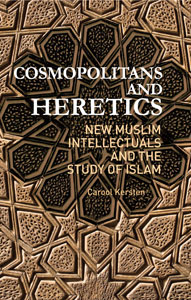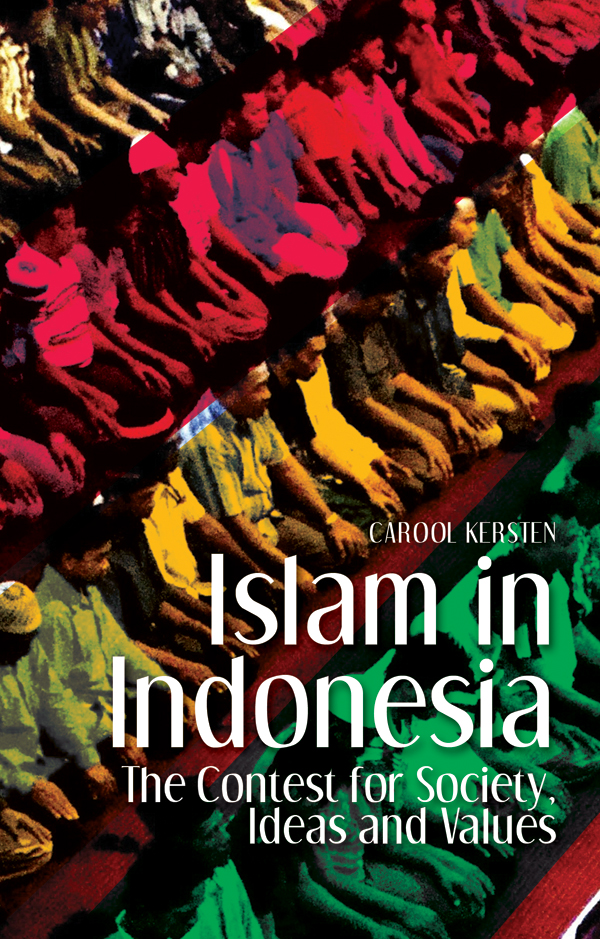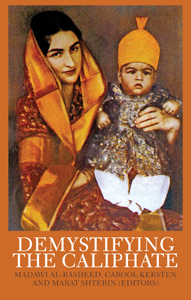Description
Dramatic political events involving Muslims across the world have put Islam under increased scrutiny. However, the focus of this attention is generally limited to the political realm and often even further confined by constrictive views of Islamism narrowed down to its most extremist exponents. Much less attention is paid to the parallel development of more liberal alternative Islamic discourses. The final decades of the twentieth century have also seen the emergence of a Muslim intelligentsia exploring new and creative ways of engaging with the Islamic heritage. Drawing on advances made in the Western human sciences and understanding Islam in comprehensive terms as a civilisation rather than restricting it to religion in a conventional sense, their ideas often cause controversy, even inviting accusations of heresy.
Cosmopolitans and Heretics examines three of these new Muslim intellectuals who combine a solid grounding in the Islamic tradition with an equally intimate familiarity with the latest achievements of Western scholarship in religion. This cosmopolitan attitude challenges existing stereotypes and makes these thinkers difficult to categorise. Underscoring the global dimensions of new Muslim intellectualism, Kersten analyses contributions to contemporary Islamic thought of the late Nurcholish Madjid, Indonesia’s most prominent public intellectual of recent decades; Hasan Hanafi, one of the leading philosophers in Egypt; and the influential French-Algerian historian of Islam Mohammed Arkoun. This is the first book of its kind and a welcome addition to the intellectual history of the modern Muslim world.
Reviews
‘Kersten’s sharply written study examines the contributions of three cutting edge Muslim scholars who engage creatively with the main currents of twentieth century thought: Nurcholish Madjid, Hasan Hanafi and Mohammed Arkoun. Displaying a profound grasp of modern intellectual history, Kersten assesses the efforts of these thinkers to break out of old paradigms and fashion novel and humanistic understandings of Islam, often at risk of severe censure. The terrain covered in the book is impressive, and fascinating details emerge as Kersten traces the scholarly genealogies of his subjects. In a field dominated by studies of Islamism, Cosmopolitans and Heretics offers relief. This is intellectual history of the highest calibre that should be read by anyone interested in modern Islamic thought. Outstanding.’ — John Calvert, Professor of History, Creighton University and author of Sayyid Qutb and the Origins of Radical Islamism
‘This investigation of the work of three significant contemporary Muslim thinkers, from Indonesia, Egypt and Algeria/France, provides a good illustration of the range of thinking and approaches across the Muslim World, both on Islam itself and on Muslim interaction with Western thought. Well located in the context of debates about concepts such as postcolonialism, translation, and hybridity, this is a powerful, and welcome, plea for the investigation of Islamic thought on a global, as opposed to a regional, basis.’ — Hugh Goddard, Director of the HRH Prince Alwaleed bin Talal Centre for the Study of Islam in the Contemporary World, University of Edinburgh
‘Cosmopolitans and Heretics charts new territory … Kersten traces the arc of influence stemming from a cluster of new Muslim intellectuals whose work is little- known but whose impact has begun to grow, and provides welcome attention to themes and issues, texts and contexts that will now be debated with fresh, sustained vigour.’ — Bruce B. Lawrence, Professor of Islamic Studies, Duke University and author of The Qur’an – A Biography
‘A state-of-the-art evaluation of three Muslim intellectuals and their contribution to nuanced understandings of Islam in the global age. Kersten’s assessment of their oeuvre and teachings challenges simplistic and monolithic readings. This book will endure as the most definitive blueprint for comprehending cosmopolitan Islam and its influence on global Islamic discourse.’ — Raymond Scupin, Center for International and Global Studies, Lindenwood University
‘An important study of some of the leading Muslim intellectuals of the beginning of the twenty-first century. Kersten does an admirable job of situating them in both Islamic tradition and developments on Western thought. Highly recommended.’ — Omid Safi, Professor of Islamic Studies, University of North Carolina
‘This rigorous book presents an insight into the ideas of three Muslim thinkers who are neither traditionalist, modernist nor reformist/revivalist but a new breed who emphasise revisiting the turath – heritage. Their thought has important implications for the present and the future of the post-Islamist Muslim world.’ — Imtiyaz Yusuf, Professor of Islamics and Religion, Assumption University, Bangkok
‘One of the reasons for the really abysmal knowledge of Americans—both the general public and many scholars—about the contemporary currents in Islam is language. As Carool Kersten’s challenging but very important new study shows, much of the work of or on Islamic modernism is beyond the reach of potential readers who do not speak Arabic or Indonesian or French. This is what makes a summary like Kersten’s so very valuable, as he is bringing some critical information to the English-speaking world that would be largely inaccessible otherwise.’ – Anthropology Review Database
‘It is a rare treat to find an English-language work of intellectual history by a scholar who is proficient in Arabic, Indonesian, and French – and thus capable of bringing together the Indonesian Islamicist Nurcholish Madjid (1939-2005), the Egyptian philosopher Hasan Hanafi (1935-), and the French-Algerian Islamicist Mohamed Arkoun (1928-2010). Carool Kersten offers the first systematic treatment in English of these three figures’ thought and convincing arguments for why they not only deserve consideration together, but also why, when taken together, they represent a significant development in Islamic thought … One hopes to see more books of this nature from this and other scholars who, hopefully, will be inspired by this work.’ – Michaelle Browers, American Journal of Islamic Social Sciences


